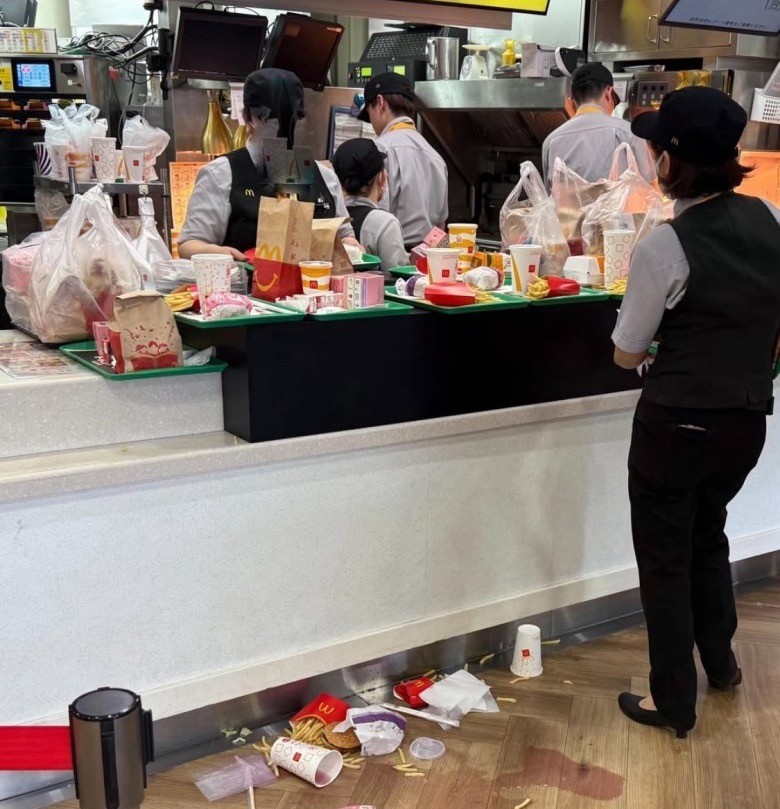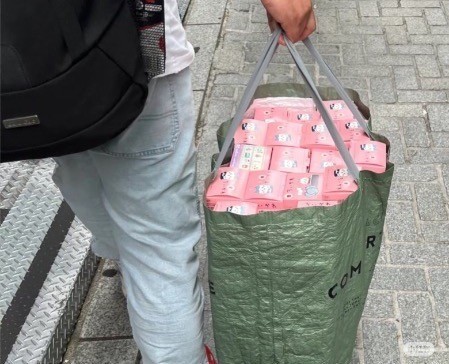views

The aroma of freshly fried golden arches usually signifies a simple, joyful meal, especially when it comes to McDonald's Happy Meals. But in recent months, a different scent has permeated the air at McDonald's Japan – the scent of desperation, profit, and unfortunately, a growing concern over food waste. At the heart of this unusual phenomenon are the adorable, highly sought-after chiikawa toys.
These charming characters, beloved for their whimsical adventures and relatable anxieties, have become the latest obsession for collectors and a goldmine for McDonald's Japan chiikawa scalpers. What began as a delightful promotion offering exclusive chiikawa figurines with Happy Meals has spiraled into an unprecedented buying frenzy, driving the anime toy resale market into overdrive.
Walk into any McDonald's across Tokyo, Osaka, or Kyoto during a chiikawa Happy Meal promotion, and you'll witness scenes far removed from typical family dining. Lines stretch out the door, not for burgers, but for the chance to acquire the latest chiikawa collectible. Online, the situation is even more extreme. Rare chiikawa toys that once came free with a meal are now fetching upwards of $80+ on resale platforms. This isn't just a local trend; the chiikawa McDonald'sphenomenon has captured global attention, with international collectors eager to get their hands on these elusive figures.

But the pursuit of profit has a concerning side effect: food waste. While the original intent of the Happy Meal is a complete experience, many scalpers, focused solely on the toy, are purchasing multiple meals and then discarding the food. This isn't a case of deliberately wasting untouched meals in plain sight, but rather a pattern of acquisition where the food is secondary, often left behind or disposed of, to secure the coveted toy. The sheer volume of discarded packaging and untouched items, though not always directly witnessed as "wasted untouched meals," contributes to a growing environmental concern.
The allure of the Japanese anime merchandise market is undeniable. From Pokémon to Studio Ghibli, Japanese collectibles have always commanded a premium. However, the chiikawa craze has amplified this, exposing the vulnerabilities of promotions tied to highly desirable, limited-edition items. Social media platforms are awash with images of vast hauls of chiikawa toys, often accompanied by criticisms of the accompanying food being left untouched.
For ordinary fans, getting a chiikawa toy has become a monumental challenge. Parents trying to treat their children to a Happy Meal are often met with empty toy displays, while online, they face exorbitant prices from resellers. The situation highlights the ethical dilemmas present in the toy collecting world and raises questions about corporate responsibility in managing demand for such popular promotions.
As McDonald's Japan continues its partnerships with beloved franchises like chiikawa, there's an increasing call for strategies to mitigate the impact of scalping and address the issue of food waste. Whether it's limiting purchases, offering toys separately, or implementing new distribution methods, the hope is to bring the joy back to the Happy Meal and ensure that the chiikawa craze leaves behind only smiles, not wasted meals. The chiikawa McDonald's price online reflects a market out of balance, a testament to the power of cute characters and the relentless pursuit of profit in the booming Japanese collectibles scene.
マクドナルドの「ちいかわ&マイクラ」ハッピーセットが中国人転売ヤーの爆買いにより即日完売。マックの中身は床に落ち、食べ物を何だと思っているのか?転売対策も虚しくフリマサイトに高額出品が相次ぎ、購入者から怒りの声。
— のうまにあ 願榮光🏴🇯🇵 (@FreeAll_protest) May 18, 2025
ちいかわ公式サイトは販売終了を発表。#中国帰れ #Chikawa pic.twitter.com/lODZChept6




















Comments
0 comment